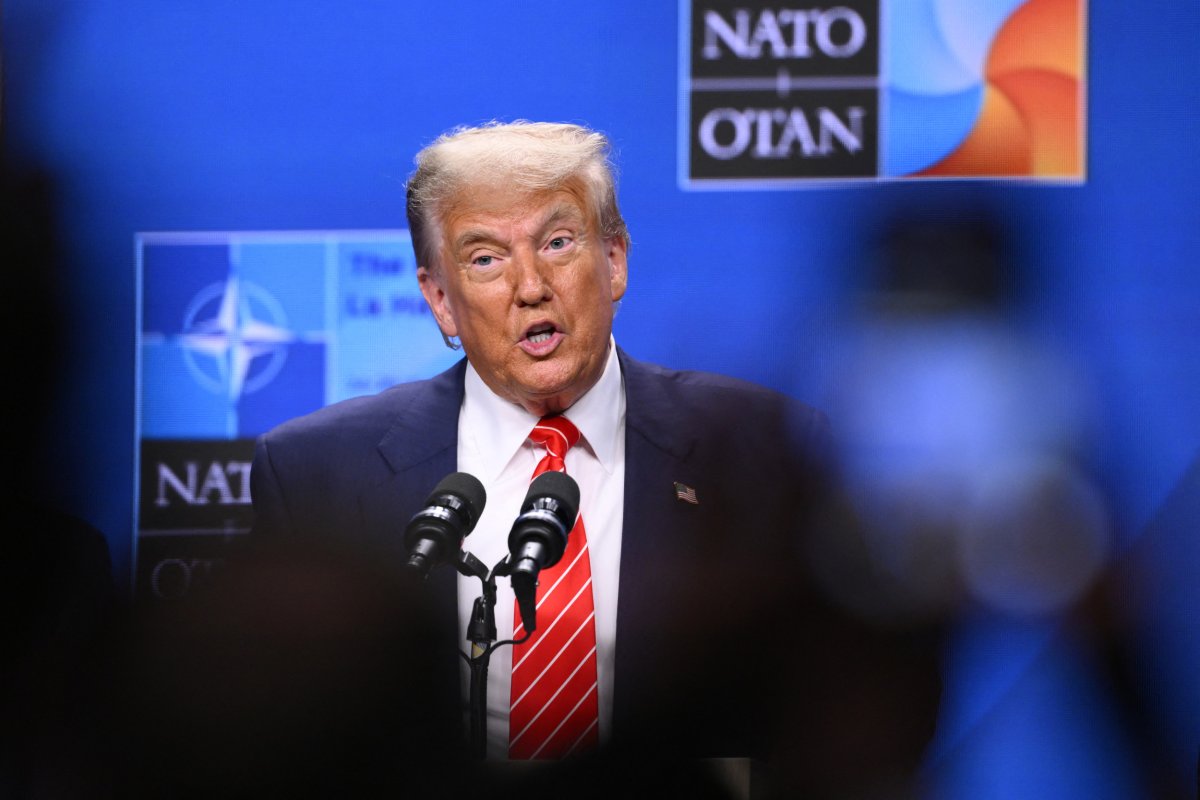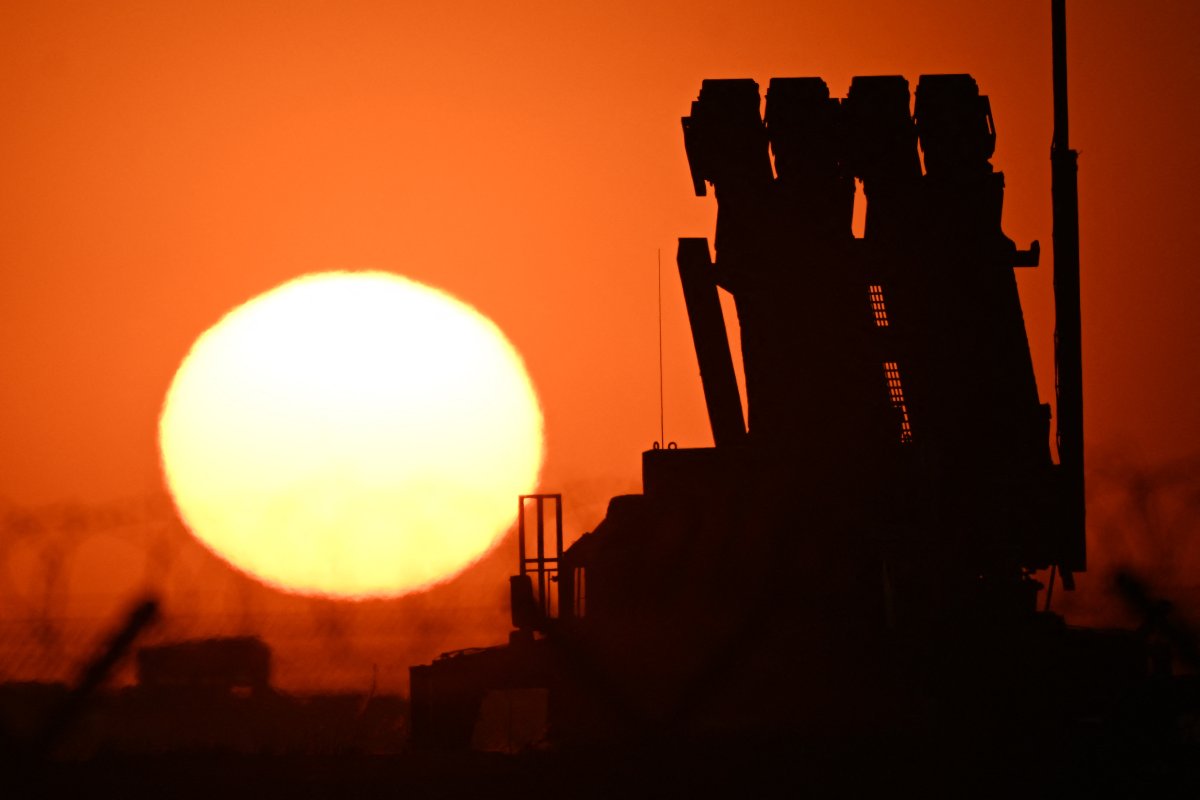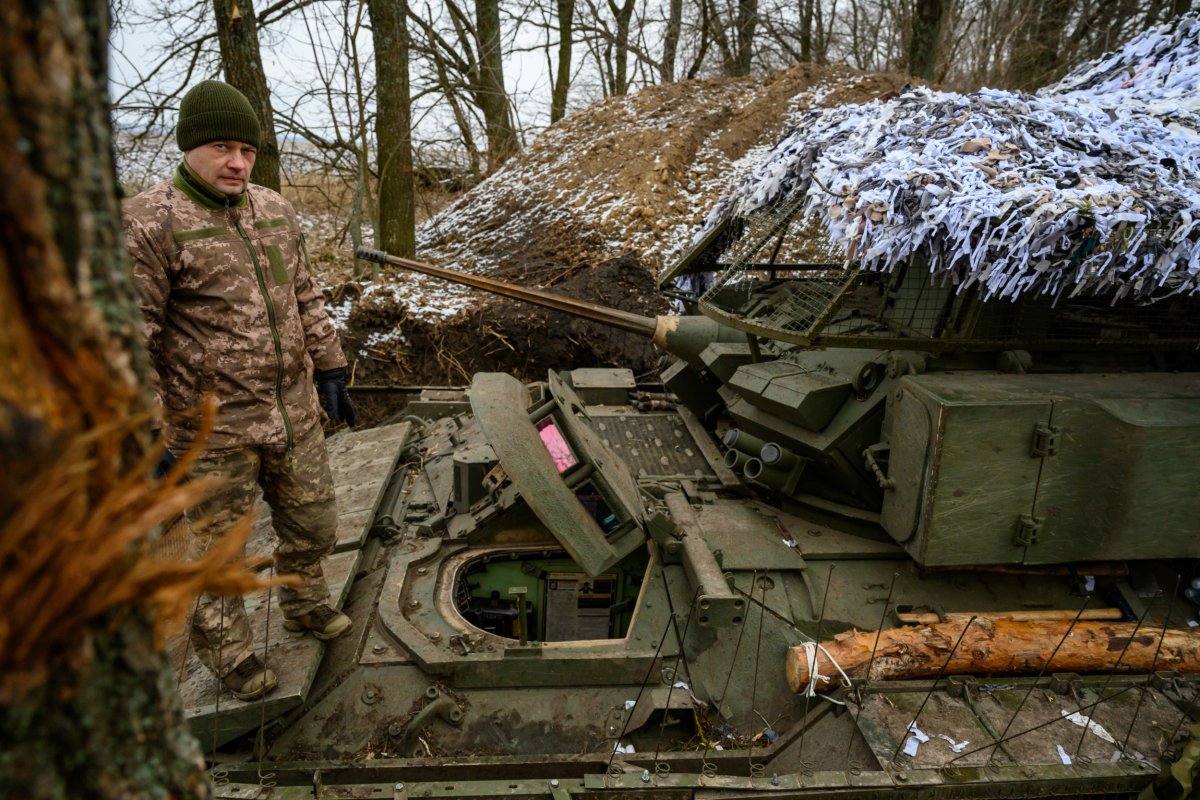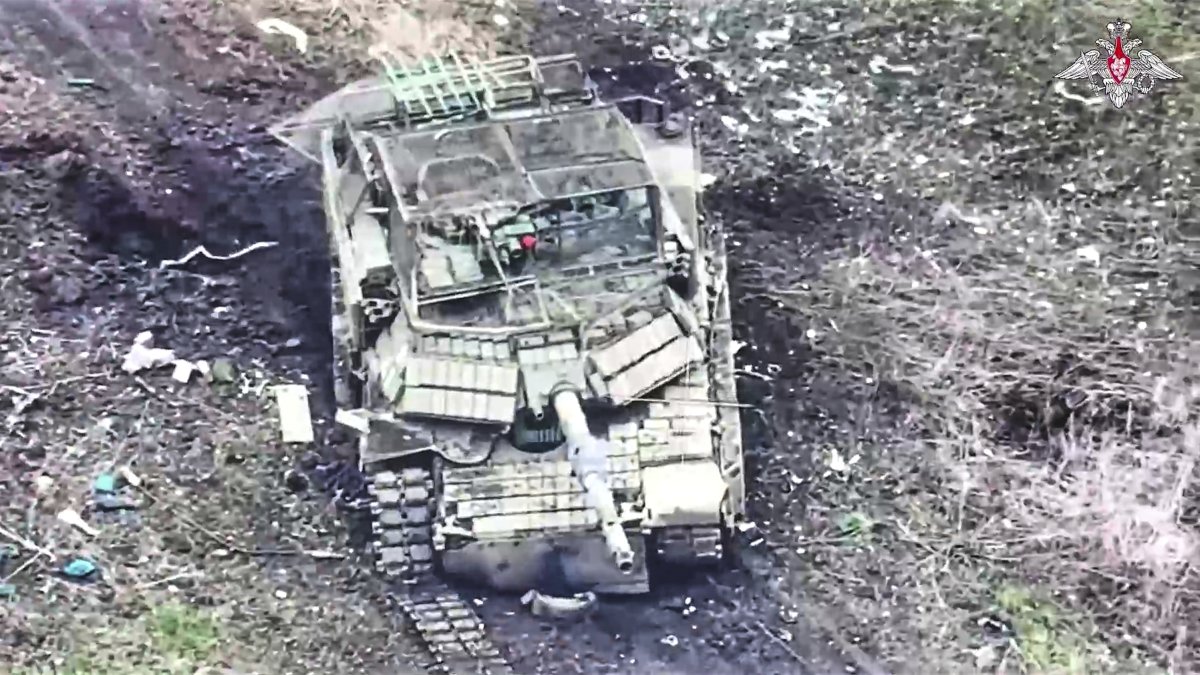A string of NATO state pledges to acquire mostly U.S. weapons to provide to Ukraine has marked a victory for President Donald Trump in his effort to strike a balance on shifting the burden of Washington’s role in the war to European allies while maintaining a role in the conflict.
The developments take place as Trump has hardened his rhetoric against Russian President Vladimir Putin, offering him until Friday to demonstrate progress on stalled peace talks.
“This initiative strikes the correct balance between ensuring Ukraine has the weapons needed to continue to resist Russian aggression and buying time for President Trump’s diplomacy and economic pressure to take hold,” Alexander Gray, a senior fellow at the American Foreign Policy Council who served on the staff of the National Security Council under the first Trump administration, told Newsweek.
Gray also pointed out the broader geopolitical stakes that the Trump administration had in mind, including “the very real need of the United States to empower Europe to take the lead in its backyard while U.S. attention adjusts to the existential threat of China in the Indo-Pacific.”

JOHN THYS/AFP/Getty Images
Money and Munitions on the Move
The Netherlands was the first to announce on Monday that it would deliver an estimated $580 million package of U.S. weapons, including Patriot air defense systems and artillery equipment, to Ukraine.
NATO reported the following day that Denmark, Norway and Sweden had confirmed they would purchase $500 million worth of U.S.-sourced equipment. Both moves mark the first two tranches under the NATO-led Prioritized Ukraine Requirements List (PURL) initiative.
State Department spokesperson Tammy Bruce welcomed the back-to-back moves as critical for Ukraine, as well as for the Trump administration’s broader outlook on recalibrating the transatlantic security partnerships in a way that was more beneficial to the U.S.
“These commitments deliver on President Trump’s initiative to facilitate billions of dollars in investment to the United States defense industry and create American jobs while ensuring Europe can ultimately defend itself long term,” Bruce told reporters on Tuesday.
They also come on the heels of a trade deal reached late last month between the U.S. and the European Union, through which Trump said EU member states—the majority of whom are also in NATO—agreed to purchase “hundreds of billions of dollars-worth of military equipment” from the U.S.
Last week, EU Ambassador to the U.S. Jovita Neliupšienė spoke to the importance of the military component of the trade agreement, both in the context of the war in Ukraine and EU member states’ own security, in an interview with Newsweek.
“Because of the Russian aggression in Ukraine, and because for European countries, security is really an existential topic right now,” Neliupšienė told Newsweek at the time, “I think cooperation on the strategic level, but as well on defense procurement with the U.S., is extremely important.”

SERGEI GAPON/AFP/Getty Images
A Transatlantic Shift
Neliupšienė also discussed how European allies of the U.S. were looking to double down on investments in their own defense industrial base in order “to make sure we have more strategic independence, we have diversification, and we are really increasing the production and real defense industry on the ground, to have a possibility to not only to defend ourselves, but to deter.”
EU and NATO leaders, including French President Emmanuel Macron, have long sounded the alarm on the necessity for Europe to improve on defense. Such calls have accelerated this year since the reelection of Trump, who has repeatedly accused European leaders of taking advantage of U.S. security guarantees.
The EU took an unprecedented step on this front in March, announcing that member states would spend some $685 billion—on top of more than $170 billion in EU loans—to launch a large-scale rearmament plan.
With the tides of transatlantic security changing, Gray argued that the Trump administration should “continue to encourage Europe to invest in its own defense, including by purchasing U.S. systems like Patriot and others that strengthen our defense industrial base and further integrate our militaries.”
“This also has very real domestic benefits for the United States,” he added. “President Trump is likely to continue encouraging significant arms sales from our partners globally, as he did in his first term for strategic and economic reasons, including to balance our trade deficits.”

Scott Peterson/Getty Images
Weening Off of Washington
While the rush of U.S. arms may serve to meet some of Ukraine’s shortfalls on the battlefield, some argue the tranches also run the risk of deepening rather than countering European dependence on the U.S. in the long run.
“Arms sales are an unfortunate Catch 22 situation, both for European policymakers and for American advocates of greater burden-shifting to Europe,” Emma Ashford, senior fellow at the Stimson Center’s Reimagining US Grand Strategy program, told Newsweek.
“In the short run, purchasing U.S. arms may be good for the American economy— and also may enable European states to step up their military capabilities more quickly,” Ashford said. “But in the long run, these purchases from the United States also undermine the development of a robust European defense industrial base.”
At the same time, she argued that “European allies buying American weapons to send to Ukraine is more sustainable from the point of view of U.S. public opinion, in that it reduces the concerns over cost among the public and policymakers.”
“It also means that Congress does not need to take up another supplemental spending bill, which could be politically problematic for many members,” Ashford said, “and that the Trump administration—which has publicly opposed such a bill—would not have to sign it.”
There’s another challenge she points out, and that’s a “concrete shortfall in some weapons systems needed for both the Indo-Pacific and Europe, and in a few cases, the Middle East.”
“Money does not resolve this concern, which particularly attaches to things like air defense systems,” she said, “this was the source of the recent disagreement over the Pentagon’s halt on weapons systems to Ukraine.”

Russian Defense Ministry Press Service Press Service/AP
‘Europeans Need to Do More’
As the war drags on, however, with Russia making gradual yet steady advances on the battlefield and indicating little desire to back down, some in Europe feel even a short-term solution is crucial.
“Regarding the ambition of increasing Europe’s self-reliance, often called ‘strategic autonomy,’ it takes not only money, which can be raised quickly, if needed, but also time; several years at least,” Andras Rácz, senior fellow at the German Council on Foreign Relations’ Center for Security and Defense, told Newsweek.
“Should Ukraine fall soon, Russia could get ready for a conventional attack on the continent years before Europe could significantly scale up its own defenses,” Rácz said. “From this perspective, the short-term scheme of Europeans buying U.S.-weapons for Ukraine also contributes to making Europe a stronger military power in the longer run.”
Moreover, he argued that the new arrangement would make the overall Western war effort “more predictable,” both due to the significant scale of funding involved as well as the perceptions surrounding how the White House had not only avoided “spending U.S. taxpayer money,” but had “also secured a significant European contribution to the U.S. defense industrial sector.”
“Ukraine’s unquestionably heroic resistance also buys time for Europe to improve its own defenses by major defense procurements, including buying U.S.-made weapons, by increasing the size of the European armed forces and by scaling up military production,” Rácz said.
Juraj Majcin, policy analyst at the European Policy Center in Brussels, also saw the initiative as a step forward, though not without uncertainties.
“From a U.S. political perspective, it is understandable that President Trump— frustrated by his failed efforts to broker a ceasefire between Russia and Ukraine, and constrained by his MAGA base and campaign promises to end military aid— has been seeking an alternative solution to keep Ukraine armed,” Majcin told Newsweek.
“Despite repeatedly calling it ‘Joe Biden’s war,'” he said, “Trump knows that the fall of Kyiv would mark a major strategic failure for any U.S. administration, including his own.”
He called the new NATO mechanism “commendable,” but argued it “does little to strengthen the quality of the transatlantic partnership” at a time when European skepticism toward Trump’s long-term commitments on the continent remained high.
“Many in Europe perceive this approach as a way for the United States to quietly distance itself from both the war in Ukraine and its European allies,” Majcin said, “however diplomatically framed by NATO Secretary-General Mark Rutte.”
“Furthemore, viewed in the context of the recently concluded EU–U.S. trade agreement,” he added, “many in Europe feel that the deal offers limited benefits for the EU and is largely tilted in favor of Washington.”
And at a time when the U.S. was eyeing its rivalry with China in the Asia-Pacific, he said that “Europeans need to do more to persuade Trump that supporting Ukraine is in America’s strategic interest.”
“With only a fraction of its GDP, the U.S. is significantly degrading military capabilities of one of its main adversaries—Russia—while also sending a clear message to China,” he added, “which is closely watching how Washington manages its security commitments.”


